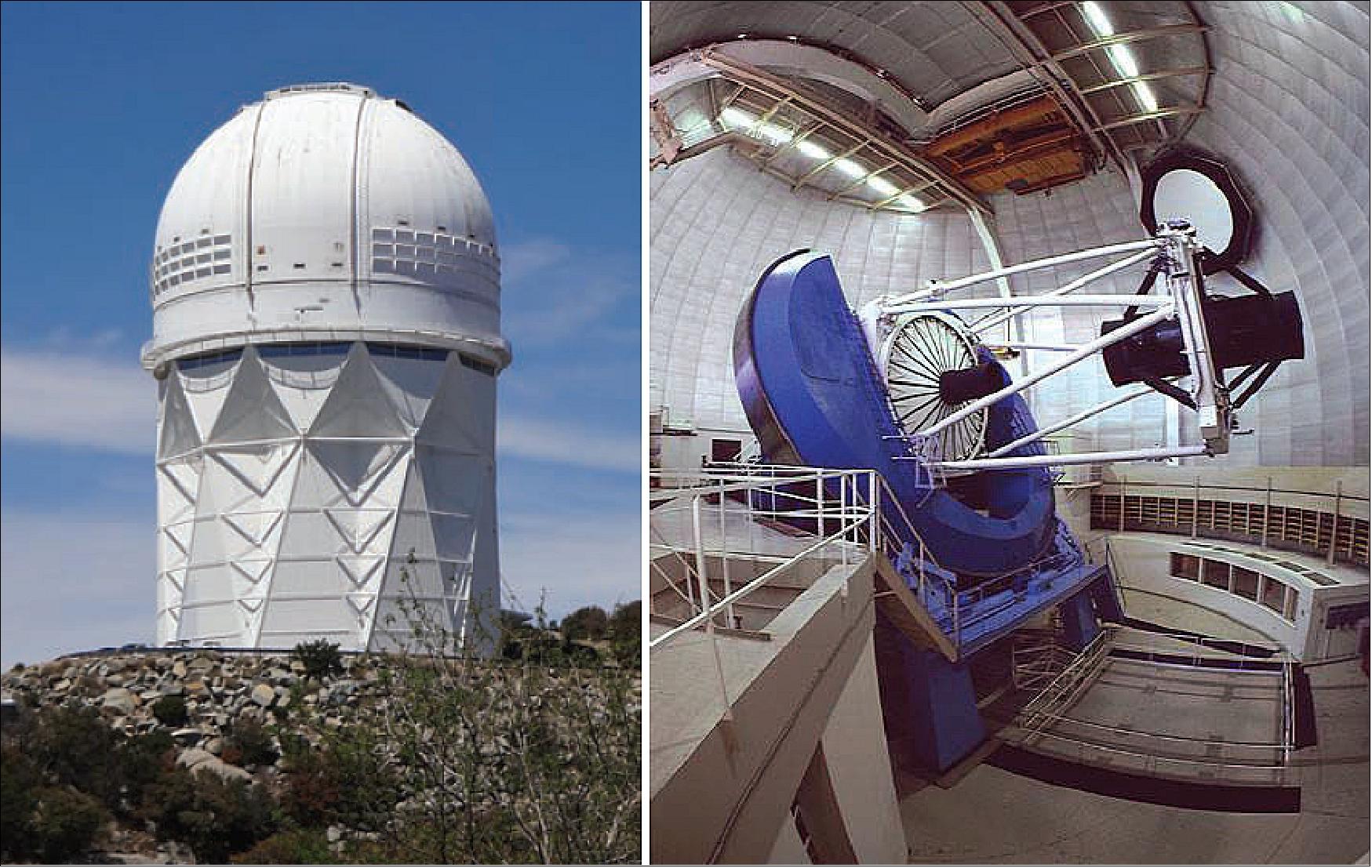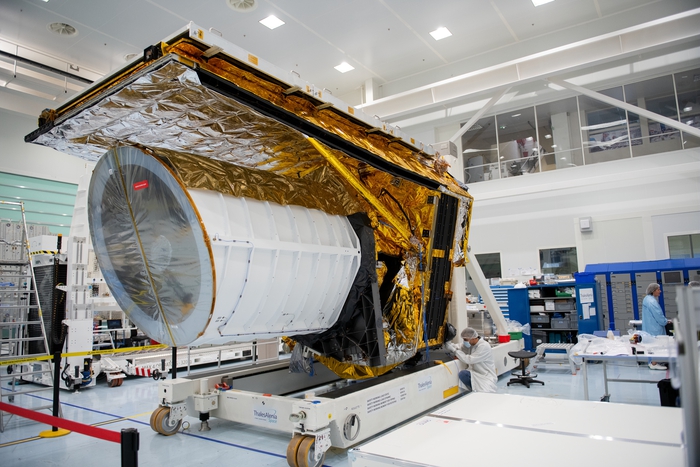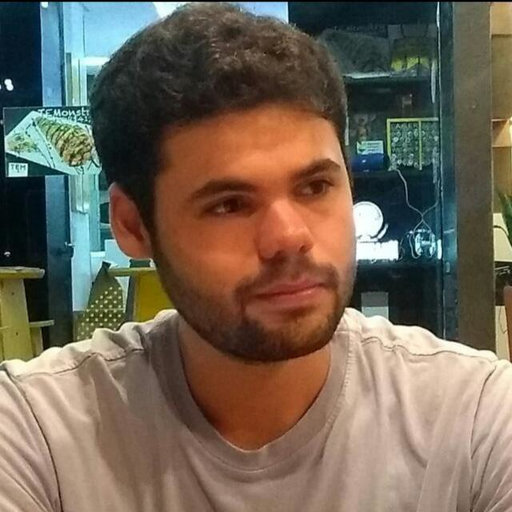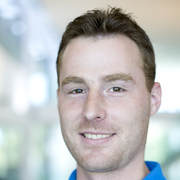
Fundamental Physics from the large-scale structure of the Universe
The project described here is funded through an ERC starter grant (853291)
Project summary: This project uses data from two experiments, the Dark Energy Spectroscopic Instrument (DESI) and the Euclid space satellite. Both of these experiments measure the distance of millions of galaxies and with that, they map out the density distribution in the Universe. The distribution of galaxies does depend on many properties of the Universe itself. For example, if there is more Dark Energy in the Universe, the Universe expands faster at late times, which will reduce the density of galaxies we measure with these experiments. On the other hand, if there is more dark matter in the Universe, it will lead to a stronger clustering of galaxies and the Universe will look more clumpy. In this project, we calculate summary statistics like the power spectrum or bispectrum from the distribution of galaxies. These summary statistics can be compared to theoretical models of the Universe. Such tests allow us to determine what the Universe is made of (Dark Matter, Dark Energy, Neutrinos, baryons), but they can also help to determine the initial conditions. Currently, we believe that a rapid expansion phase in the early Universe called inflation set the initial conditions for later galaxy formation. This rapid expansion has theoretical motivation but has not been verified convincingly with data. The aim of this project is to (1) expand the summary statistics used for such tests, to optimally exploit the data provided by the two experiments mentioned above, (2) investigate new observables, to test the dynamics of the early Universe, (3) test General Relativity on cosmological scales.

 Left: The Mayall 4m telescope dome structure located in Arizona, USA and the DESI instrument. Right: The Euclid satellite
just before getting shipped to North America for the launch in a SpaceX Falcon 9 rocket.
Left: The Mayall 4m telescope dome structure located in Arizona, USA and the DESI instrument. Right: The Euclid satellite
just before getting shipped to North America for the launch in a SpaceX Falcon 9 rocket.
Meet the team:

I am Thiago Mergulhão, a second-year physics PhD student at the University of Edinburgh. I have always been driven by curiosity and understanding of the fundamental mathematical laws describing nature. For this reason, I decided to do an undergrad in physics at the Federal University of Pernambuco, in my hometown in Brazil. There, I could learn the basics of different areas in physics with an emphasis on General Relativity and differential geometry. After finishing my studies, I received a two years Master’s fellowship at the University of São Paulo. In my Master’s, I started to carry on research in both theoretical and observational cosmology, which is the same area I am currently working on in my PhD In short, we try to understand the distribution of matter over the large scales of the late-time Universe and its connection with the primordial Universe.

I am Mike (Shengbo) Wang, Postdoctoral Research Associate at the Institute for Astronomy, University of Edinburgh, and a member of the Dark Energy Spectroscopic Instrument (DESI) Collaboration and the Euclid Consortium. My research focuses on clustering statistics characterising the distribution of galaxies tracing the large-scale structure of the Universe, which contain a wealth of information about the spacetime geometry, gravitational evolution and initial conditions of structure formation. Currently, I am working on the development of analysis pipelines for higher-order clustering statistics. Prior to this, I obtained my PhD from the Institute of Cosmology and Gravitation at the University of Portsmouth, and MMath from the University of Cambridge.

I am Richard Neveux, a Postdoctoral Research Associate at the University of Edinburgh since November 2021. I work on the large-scale structures of the Universe and, particularly, on the statistical modelling of the distribution of galaxies. I obtained my Master’s degree from Sorbonne University before getting my PhD at Paris Saclay University, working in the “Institut sur les Recherches Fondamentales de l’Univers” of CEA.

I am Samuel Brieden , a Postdoctoral Research Associate at the Institute for Astronomy at the University of Edinburgh. I obtained my Master’s degree in physics at RWTH Aachen in 2018 and my PhD degree at the University of Barcelona in 2022. My research is dedicated to cosmology and as a member of the Dark Energy Spectroscopic Instrument (DESI) collaboration and the Euclid Consortium I work on the interface between observations of the spatial distribution of galaxies and theoretical predictions of its statistical properties. In particular, I focus on extracting robust cosmological information beyond the baryon acoustic oscillation and redshift-space distortion signals from the galaxy clustering data while taking into account potential systematic uncertainties.

I am Florian Beutler, a Reader/Assoc. Prof. at the University of Edinburgh, a Royal Society URF fellow and the PI of this ERC grant. I did my undergraduate study at the University of Heidelberg in Germany and my PhD at the University of Western Australia. After two postdocs at the University of California, Berkeley and the University of Portsmouth I became a lecturer in Portsmouth in 2018 and moved to Edinburgh in 2020. My work focuses on statistical data analysis in cosmology with a focus on baryon acoustic oscillations, redshift-space distortions, neutrino cosmology, and tests of the dynamics in the early Universe.